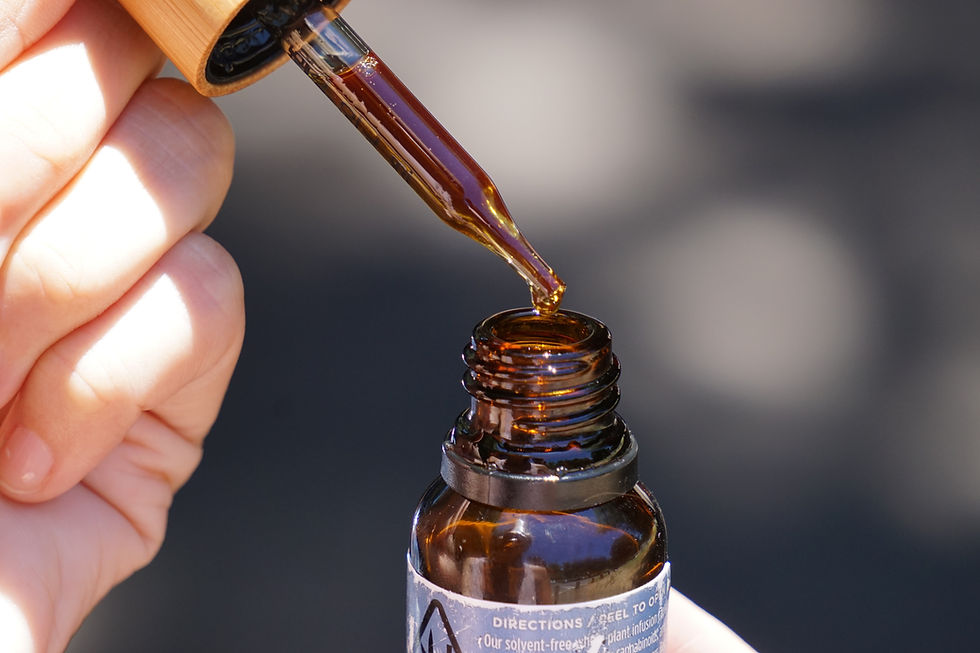
Introduction
Cannabis-assisted psychotherapy (CAP) is an emerging field that integrates the therapeutic potential of cannabis with traditional psychotherapy techniques. This innovative approach is gaining traction as a promising method for treating various mental health disorders. This article delves into the nuances of CAP, exploring its benefits, methodologies, and future potential.
What is Cannabis-Assisted Psychotherapy?
Cannabis-assisted psychotherapy (CAP) involves the use of cannabis as a therapeutic aid in conjunction with traditional psychotherapy techniques. This approach aims to enhance the therapeutic process by leveraging the psychoactive and medicinal properties of cannabis.
History of Cannabis in Therapy
Ancient Uses
Cannabis has been used for medicinal purposes for thousands of years. Ancient cultures, including the Chinese and Indians, utilized cannabis for its healing properties, particularly for pain relief and psychological conditions.
Prohibition Era
The 20th century saw the prohibition of cannabis, largely driven by political and social factors. This led to a decline in its therapeutic use and a surge in negative perceptions.
Modern Resurgence
In recent decades, scientific research and changing legal landscapes have sparked a resurgence in the use of cannabis for therapeutic purposes. This has paved the way for innovative treatments like CAP.
How Does Cannabis-Assisted Psychotherapy Work?
Mechanisms
Cannabis interacts with the endocannabinoid system (ECS) in the human body, which plays a crucial role in regulating mood, memory, and stress. By modulating ECS activity, cannabis can enhance the emotional and psychological processes involved in therapy.
Therapeutic Synergy
The combination of cannabis and psychotherapy can create a synergistic effect, amplifying the benefits of both. Cannabis may help reduce anxiety, facilitate emotional openness, and enhance introspection, making therapy sessions more effective.
Client Experiences
Patients undergoing CAP often report deeper emotional insights, greater relaxation, and improved therapeutic outcomes. These subjective experiences highlight the potential of CAP in treating mental health disorders.
Benefits of Cannabis-Assisted Psychotherapy
Mental Health Benefits
CAP has shown promise in treating a variety of mental health conditions, including anxiety, depression, PTSD, and addiction. Cannabis can help alleviate symptoms, making patients more receptive to therapy.
Physical Health Improvements
In addition to mental health benefits, CAP can also contribute to physical well-being. Cannabis’s anti-inflammatory and pain-relieving properties can enhance overall health and quality of life.
Types of Cannabis Used in Psychotherapy
THC-Dominant Strains
THC-dominant strains are known for their psychoactive effects, which can be beneficial in certain therapeutic contexts. These strains may help patients explore deep-seated emotions and traumas.
CBD-Dominant Strains
CBD-dominant strains are non-psychoactive and are often preferred for their calming and anti-anxiety effects. These strains can help patients relax and engage more fully in therapy without the high associated with THC.
Balanced Strains
Balanced strains containing equal parts THC and CBD can offer a mix of psychoactive and therapeutic benefits, making them versatile options for CAP.
Methods of Administration
Smoking

Smoking is one of the fastest ways to feel the effects of cannabis, making it a common choice for CAP. However, it may not be suitable for all patients due to potential respiratory issues.
Vaping

Vaping provides a smoke-free alternative, delivering rapid effects similar to smoking. It is often recommended for patients looking for a less harmful method of administration.
Edibles

Edibles offer a discreet and long-lasting way to consume cannabis. They are ideal for patients who prefer not to inhale smoke or vapor but require careful dosage management due to delayed onset effects.
Tinctures

Tinctures are liquid cannabis extracts taken sublingually (under the tongue). They provide a controlled dosage and quick onset, making them a flexible option for CAP.
Choosing the Right Dosage
Factors Influencing Dosage
Dosage depends on various factors, including the patient’s weight, tolerance, and specific condition being treated. A personalized approach is essential for effective CAP.
Titration
Titration involves gradually adjusting the dosage to find the optimal level for therapeutic benefit without excessive side effects. This process requires careful monitoring by a trained professional.
Professional Guidance
Working with a knowledgeable therapist or healthcare provider is crucial for determining the appropriate dosage and ensuring safety in CAP.
Legal Considerations and Regulations
Current Laws
The legal status of cannabis varies widely across regions. It is important for patients and therapists to be aware of local regulations governing the use of cannabis in therapy.
Future Trends
As research progresses and public opinion shifts, it is likely that more regions will adopt regulations allowing CAP. Keeping abreast of these trends is important for both patients and practitioners.
Legal Challenges
Despite growing acceptance, CAP faces legal challenges, including regulatory hurdles and societal stigma. Advocacy and education are key to overcoming these obstacles.
Cannabis and PTSD Treatment

Case Studies
Numerous case studies highlight the effectiveness of CAP in treating PTSD. Patients often report significant reductions in symptoms and improved quality of life.
Effectiveness
Research indicates that cannabis can help reduce the severity of PTSD symptoms, such as flashbacks, anxiety, and depression, making it a valuable tool in therapy.
Patient Testimonials
Patient testimonials provide compelling evidence of the benefits of CAP. Many individuals share stories of how CAP has transformed their lives and helped them cope with PTSD.
Anxiety and Depression

Treatment Protocols
CAP protocols for anxiety and depression involve careful selection of cannabis strains and dosages. Therapy sessions focus on addressing underlying issues and developing coping strategies.
Success Stories
Many patients have found relief from anxiety and depression through CAP. Success stories often highlight the combination of cannabis’s calming effects and the supportive environment of therapy.
Research Findings
Scientific studies support the use of cannabis in treating anxiety and depression. Ongoing research continues to explore the mechanisms and long-term effects of CAP.
Cannabis for Addiction Therapy

Substitution Therapy
Cannabis can be used as a substitute for more harmful substances, helping individuals reduce dependence on drugs or alcohol. This approach is gaining recognition as a viable treatment option.
Relapse Prevention
CAP can aid in preventing relapse by addressing underlying psychological issues and providing a safer alternative to addictive substances.
Harm Reduction
Using cannabis in a controlled therapeutic setting can reduce the harm associated with substance abuse, offering a safer pathway to recovery.
Insomnia Treatment

Cannabis is known for its ability to improve sleep quality, making it an effective treatment for insomnia. CAP can help patients establish healthier sleep patterns.
Sleep Quality Improvement
Patients undergoing CAP often report better sleep quality, with reduced nighttime awakenings and deeper, more restful sleep.
Integration with Traditional Therapies
Complementary Methods
CAP can be integrated with traditional therapies, such as cognitive-behavioral therapy (CBT) and mindfulness, to enhance treatment outcomes.
Enhancing Outcomes
Combining CAP with traditional therapies can amplify the benefits of both approaches, leading to more profound and lasting improvements in mental health.
Multidisciplinary Approach
A multidisciplinary approach that includes CAP, traditional psychotherapy, and other therapeutic modalities can provide comprehensive care for patients, addressing both mental and physical health needs.
Psychological Effects of Cannabis
Short-Term Effects
Short-term effects of cannabis use in CAP may include relaxation, altered perception, and emotional release. These effects can facilitate deeper therapeutic engagement.
Long-Term Impacts
Long-term impacts of CAP vary among individuals. While many experience lasting benefits, ongoing research is needed to fully understand the potential long-term effects on mental health.
Patient Experiences
Patients often report enhanced self-awareness and emotional processing during CAP sessions, contributing to the overall effectiveness of therapy.
Potential Risks and Side Effects
Managing Side Effects
Common side effects of cannabis include dry mouth, dizziness, and changes in appetite. Therapists can help manage these effects through careful dosage adjustments and patient education.
Contraindications
Certain conditions, such as a history of psychosis, may contraindicate the use of cannabis in therapy. It is crucial to assess patient suitability on a case-by-case basis.
Safety Guidelines
Ensuring patient safety in CAP involves following established guidelines, such as starting with low doses and gradually increasing as needed, and monitoring for adverse reactions.
Role of Therapists in CAP

Therapist Training
Therapists providing CAP must undergo specialized training to understand the effects of cannabis, appropriate dosing, and integration with psychotherapy techniques.
Ethical Considerations
Ethical considerations in CAP include obtaining informed consent, maintaining patient confidentiality, and ensuring non-judgmental support throughout the therapeutic process.
Session Dynamics
The dynamics of CAP sessions may differ from traditional therapy, requiring therapists to be flexible and responsive to the altered states of consciousness that cannabis can induce.
Client-Therapist Relationship
Building Trust
Building a strong, trusting relationship is essential in CAP. Trust allows clients to feel safe and open up about their experiences and emotions.
Maintaining Professional Boundaries
Maintaining professional boundaries is critical to ensure the therapeutic relationship remains effective and ethical. Clear communication about roles and expectations is key.
Future Directions in CAP
Emerging Research
Emerging research is exploring new applications of CAP, such as its potential in treating neurodegenerative diseases and chronic pain. Continued research is crucial for expanding its therapeutic scope.
Technological Advancements
Technological advancements, such as virtual reality integration and biofeedback, are being explored to enhance the CAP experience and outcomes.
Potential Therapies
Future therapies may involve combining CAP with cutting-edge treatments, such as gene therapy and personalized medicine, to further enhance its effectiveness.
Public Perception and Stigma
Overcoming Stigma
Overcoming the stigma associated with cannabis use is essential for the broader acceptance of CAP. Public education and advocacy can help shift perceptions.
Public Education
Public education campaigns can inform the public about the benefits and safety of CAP, promoting a more informed and supportive attitude toward its use.
Advocacy
Advocacy efforts are crucial for advancing the acceptance and legalization of CAP, ensuring that more patients can access this innovative treatment.
Access and Availability
Finding Providers
Finding qualified CAP providers can be challenging. Patients should seek therapists with specialized training and experience in cannabis-assisted therapy.
Geographical Challenges
Access to CAP can be limited by geographical location, particularly in areas where cannabis remains illegal or stigmatized. Efforts to expand access are ongoing.
Cost Considerations
The cost of CAP can be a barrier for some patients. Exploring insurance coverage and alternative funding options can help make therapy more accessible.
Cannabis-Assisted Psychotherapy for Children and Adolescents

Ethical Issues
Ethical issues in CAP for minors include obtaining parental consent and ensuring age-appropriate treatment. Therapists must navigate these challenges with care.
Effectiveness
While research on CAP for children and adolescents is limited, preliminary findings suggest it may be beneficial for certain conditions, such as severe anxiety and PTSD.
Case Examples
Case examples of CAP in younger populations highlight its potential to address specific mental health needs while emphasizing the importance of careful monitoring and support.
Cannabis-Assisted Psychotherapy for Seniors

Addressing Age-Related Issues
CAP can be particularly beneficial for seniors, addressing age-related issues such as chronic pain, insomnia, and anxiety.
Benefits and Risks
While seniors may experience significant benefits from CAP, they are also more susceptible to certain risks, such as cognitive impairment and drug interactions. Careful assessment and monitoring are essential.
Comparing CAP to Other Therapies
Conventional Therapies
Comparing CAP to conventional therapies, such as medication and cognitive-behavioral therapy, highlights its unique benefits and potential drawbacks.
Alternative Therapies
Alternative therapies, such as ayahuasca-assisted therapy and psychedelic-assisted psychotherapy, share similarities with CAP. Comparing these approaches can provide insights into their respective strengths and weaknesses.
Cost-Effectiveness
Evaluating the cost-effectiveness of CAP involves considering both immediate and long-term benefits, including potential reductions in healthcare costs and improved quality of life.
How to Get Started with CAP
Getting started with CAP involves researching qualified providers, understanding the legal landscape, and preparing for the initial consultation.
Finding a therapist experienced in CAP is crucial for a successful therapeutic experience. Patients should seek recommendations, read reviews, and verify credentials.
Initial consultations typically involve discussing the patient’s history, goals, and suitability for CAP. This session sets the foundation for a personalized treatment plan.
Frequently Asked Questions
What conditions can CAP treat?
CAP can treat a range of conditions, including anxiety, depression, PTSD, addiction, and sleep disorders.
Is CAP legal?
The legality of CAP depends on the region. Patients should check local regulations and consult with healthcare providers.
How does CAP differ from traditional therapy?
CAP combines cannabis with traditional psychotherapy techniques, potentially enhancing emotional openness and therapeutic outcomes.
Are there any risks associated with CAP?
Like any therapy, CAP has potential risks, including side effects and contraindications. Proper assessment and professional guidance are essential.
Can children and adolescents use CAP?
While CAP can be used for minors, it requires careful ethical consideration, parental consent, and professional oversight.
How can I find a qualified CAP therapist?
Patients should seek therapists with specialized training in CAP, verifying their credentials and experience.
Conclusion
Cannabis-assisted psychotherapy represents a promising frontier in mental health treatment, offering unique benefits for a variety of conditions. By integrating the therapeutic properties of cannabis with traditional psychotherapy, CAP has the potential to transform lives and enhance well-being. As research and public acceptance continue to grow, CAP is likely to become an increasingly valuable tool in the mental health field.
Additional resources:
Verywell Mind
National Library of Medicine
Psychedelic Somatic Institute
Center for Medical Mindfulness
Comments